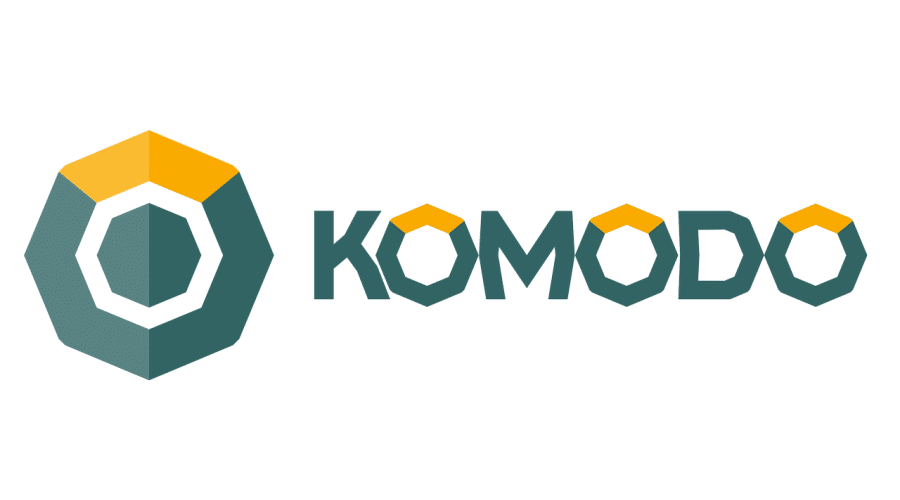What Is Komodo?
The Komodo blockchain resulted from a fork of the ZCash blockchain, which is also a fork from the
Bitcoin blockchain, which technically makes Komodo a descendent of Bitcoin.
Komodo is also known for launching the first decentralized ICO in history, which is currently
responsible for 95% of the atomic swaps of all cryptocurrencies in existence.
They reached popularity after being the first to establish a connection between Bitcoin and
Ethereum, enabling atomic swaps between any cryptocurrency which uses the code on which the
Bitcoin or Ethereum blockchain are based on.
Komodo Platform
zk-SNARK protocol
By forking from Zcash, Komodo also inherited its cryptographic zero-knowledge proof protocol which
ensures privacy, anonymity, and fungibility. The protocol is also used to make its transactions private
and anonymous.
Delayed Proof of Work (dPOW)
The Komodo team developed a new consensus mechanism that employs the regular proof of work
protocol used by Bitcoin, but applied in a different manner. dPoW uses a system which validates the
blocks on the blockchain, which makes sure that transactions are completely immutable and
enhances their security.
The 64 pre-selected notary nodes authenticate and mitigate the risk of immutability. In order for
attackers to modify a historic Komodo transaction, they have to first change the Bitcoin blockchain,
which is impossible.
SuperNET
SuperNET is a decentralized organization which focuses on developing open-source and
decentralized tools for the cryptocurrency market, such as wallets, decentralized exchanges, and
price stability products. Below are a few of these products:
- BarterDex
BarterDex is a decentralized exchange developed by Komodo which uses the emergent technology of
atomic swaps. Unlike other decentralized exchanges that use proxy tokens or concept of pegged
assets, BarterDex bypasses those workarounds using atomic swaps.
Also, in order to exchange a currency, BTC is used as an intermediary, as most DEXs don’t have
decentralized order matching and settlements. BarterDex is not limited by such condition.
BarterDex has executed more than 50,000 atomic swaps and supports more than 80
cryptocurrencies on their DEX.
- dICO
dICO is a decentralized version of ICOs or token sale which is conducted on the Komodo platform.
The dICO model uses the atomic swap technologies to obtain a total decentralized and anonymous
issuance and distribution.
- Jumblr
Jumblr is a coin mixer or a decentralized coin mixer that functions as a decentralized anonymizer.
Jumblr uses the zero-knowledge proofs that offer complete anonymity and its fee of 0.3% is
negligible compared to other services. Jumblr can be accessed using the Agama wallet.
- Peerchains
Komodo allows developers to create other sidechains which are not limited to Komodo’s blockchain
and these blockchains are known as peerchains.
Peerchains can opt to inherit or not any future upgrades that they want and still maintain its link to
the Komodo platform.
Coin Analysis
The Komodo token (KMD) was first entered the market in February 2017, at the price of $0.10. Since
then the price of the coin has increased significantly, and at the time of writing it is trading at $0.53
and is in 60th position according to market cap.
The coin’s total fixed supply is of 200 million coins, 100 million of them being pre-mined and offered
in the ICO. Out of this 100 million, 90 million were sold to investors, and 10 million were reserved for
future platform development and marketing.
Its ICO period was October 15, 2016 – November 20, 2016, and during this time 2639 BTCs were
raised (worth $1,983,781).
The remaining 100 million coins are still being mined using the proof-of-work algorithm.
The 200 million hard cap is estimated to be reached in about 14 years. Out of this, KMD holders that
have addresses beginning with ‘R’ will receive a 5% annual percentage rate (APR) bonus on their
holdings until the hard cap is reached.
The total circulating supply of Komodo is 110,900,418 KMD and its market cap is approximately
$59,106,050 USD.
Where Can You Buy Komodo KMD?
Momentarily, it is not possible to buy Komodo directly in fiat currency. However, you are able to
exchange other coins, such as BTC, LTC, or ETH for Komodo tokens on ShapeShift.
KMD is listed on a number of cryptocurrency exchanges such as: Binance, Bittrex, HitBTC, Cryptopia,
Bitbns, CoinExchange, Crex24, and Upbit.
Where Can You Store KMD?
Unfortunately, there is a limited range of wallets that offer support for KMD storage. Wallets that
support the coin are Ledger Nano S, Agama Wallet (its official wallet), and the Komodo Paper Wallet.
Conclusion
Komodo Platform (KMD) is a coin which focuses on privacy, aiming to be a faster, safer, and
ultimately decentralized cryptocurrency.
Featured image: CoinSwitch
